Human Dignity
Lower Primary
What makes me, Me?
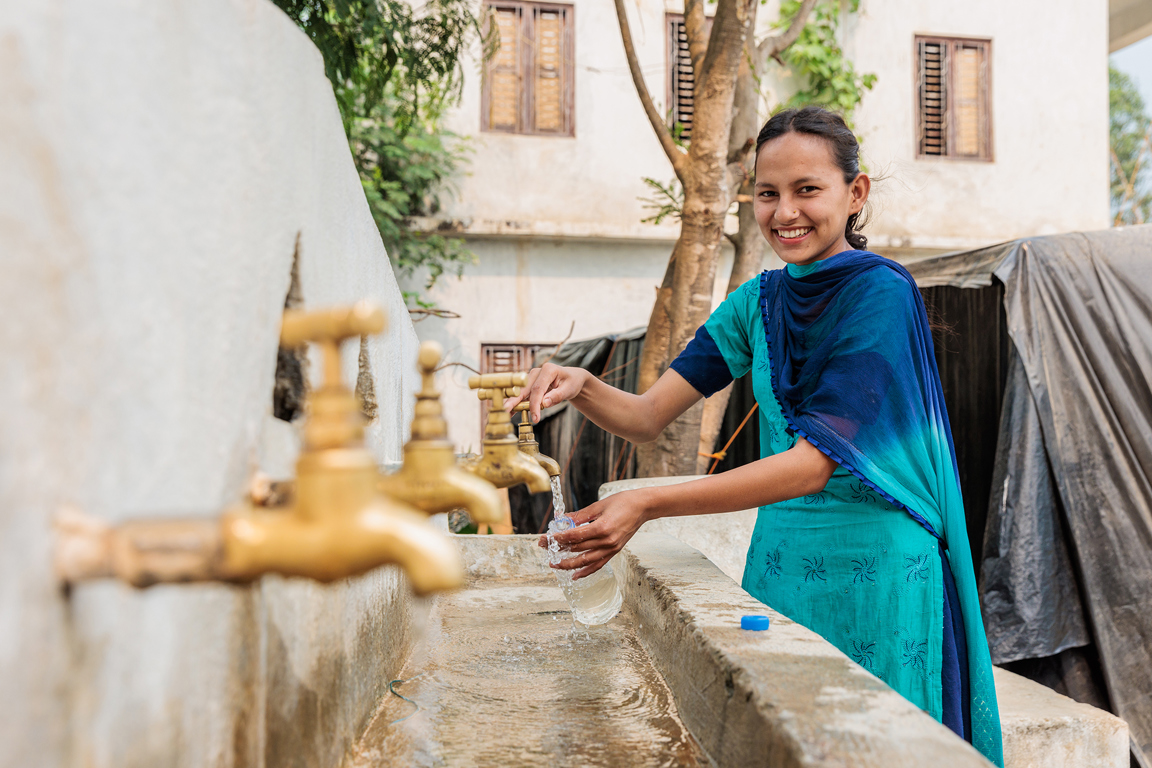
Laxmi using a water tap that she advocated to have installed as a member of the Child Club at her old school in Jajarkot district, western Nepal. Photo: Richard Wainwright/Caritas Australia
Inquiry Question: What makes me, Me?
By the end of this unit, students will have explored the significance that we are all made in the image and likeness of God, God loves us and that we can show God’s love when we love and serve others.
Before you start:
- Watch the Catholic Social Teaching (CST) film, ‘Human Dignity’, for your own background knowledge.
- Download the various resources referenced at the bottom of this page (worksheets, slides etc.) Print worksheets and have the presentation and other weblinks ready to go on your computer/interactive whiteboard
- Read/watch the stories and videos linked in this learning sequence to determine if they are appropriate for your class
- Locate Scripture passages and copies of Church texts (hyperlinked within the learning sequence below)
- Read Scripture commentaries (hyperlinked within the learning sequence below
See-Judge-Act-Pray Process
This learning sequence has been created using the ‘See, Judge and Act’ model. This reflection–action process was first used by a Belgian Catholic priest, Joseph Cardijn (who later became a Cardinal) with Young Christian workers prior to the first World War. This approach was also recommended in the 1961 encyclical letter written by Pope John XXIII called Mater et Magistra (Mother and Teacher).
Definition
-
a belief that every person is made in the image of God and is intrinsically valuable and worthy of respect, simply because they are human
-
a quality of being human, independent of ethnicity, creed, gender, sexuality, age, or ability
-
a reality challenged by poverty, hunger, oppression and injustice.
Student-friendly explanation of Human Dignity:
- Every person is made in the image of God.
- We are all valuable and worthy of respect and fairness because we are all human.
Learning intention
We are learning:
- that everyone is different and unique
- the importance of loving ourselves and others for who we are as God made us
- that we are part of a “global family”
- different ways we can demonstrate love to others.
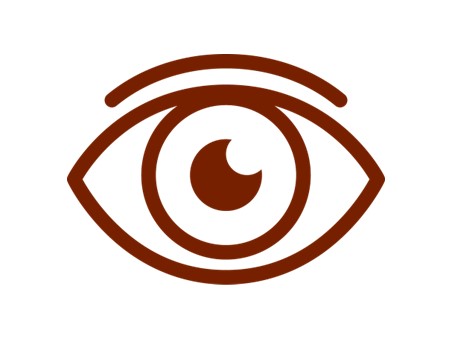
SEE
Read or Listen to ‘The World Needs Who You Were Made To Be’ by Joanna Gaines. Explain that everyone is different, unique and special.
Read and display ‘The Gift of Me’ poem from the presentation resource and create a class version as a book.
Print ‘The Gift of Me’ student worksheets. Students draw a self-portrait (they could use a mirror as they draw or refer to a printed portrait photo of themselves). The pages can then be put together as a class book.
Display the first page of Laxmi’s Photo Storybook. Complete See-Think-Wonder about Laxmi from what you can see before reading the photo storybook.
After reading Laxmi’s story, discuss as a class:
- Were your original ideas correct or incorrect?
- From the story, what did you learn about Laxmi? (What were the challenges Laxmi faced? What is Laxmi’s greatest achievement? How did Laxmi change?)
- What adjectives would you use to describe Laxmi? (Consider her experiences, where she lives, her struggles etc.)
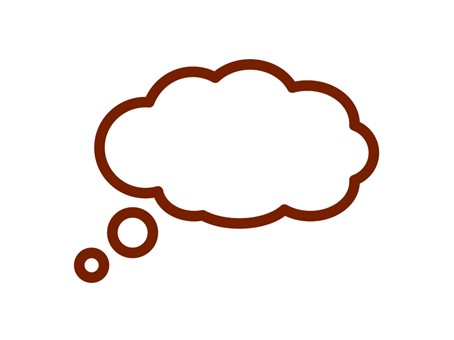
JUDGE
Listen to “I’m so wonderfully made” by the Donut man. Read lyrics.
Display Genesis 1:27 quote - the Bible teaches us that we are “created in the image of God”.
Explain that each person is precious, unique and loved by God because God made us. This means we are all very special, and very important. No matter where we live, what we look like or what we have, we are special because God made us and loves us. Not one of us are made the same, we are all uniquely made. Like our fingerprints (no-one has the same fingerprint), there is no other person who is exactly like us.
Teacher Background: Review Scripture commentary on Genesis 1:27 for context
Display the image on page 4 of the Human Dignity presentation resource. Ask the students, is this actually a person? (Response is no) Explain that the image can’t speak, think etc. but it does show a lot about the person and what they are like. In the same way, we are created in the “image of God”. We are not God, but we are created to reflect what God is like.
So, when we look in the mirror, we see a little bit of God! Have students hold up a mirror to themselves (or a reflective surface or a recent picture of themselves so they can see themselves). Guide students to consider their unique features. Have students describe themselves using the Turn and Talk strategy. Students may like to share with the class. Have students turn back to look at their partner. Explain that when we look at each other, we see a little bit of God too!
Hold up a globe and spin, explain to the class that people throughout the world are different to.
Explain that there are some people around the world that do not have the things they need to live. These are the people that Caritas Australia works with. Caritas Australia is an organisation (group of people) that is part of the Catholic Church that works to help people in need. God’s love is shown when we love and serve others. We can show God’s love when we help organisations like Caritas Australia provide seeds to farmers, clean water for families or the chance for children to go to school.
Teacher's Note: Caritas Australia works to uphold the dignity of all people. Poverty, hunger, oppression and injustice make it impossible to live a life worthy of people’s dignity. Therefore, the notion of dignity is explored through the idea of basic needs and access to resources and services.
Create a “Global Family” display with the heading ‘One Human Family, created and loved by God’.
Explain that Pope Francis wants us to stand together with our sisters and brothers around the world because we are all part of one ‘larger human family’. He talks about this in letters (Fratelli Tutti and Laudato Si’) he writes to all people in the world. Print and display 6 images of people Caritas Australia has supported. Invite students to draw a self-portrait to add to the display, demonstrating that we are all part of God’s global family.
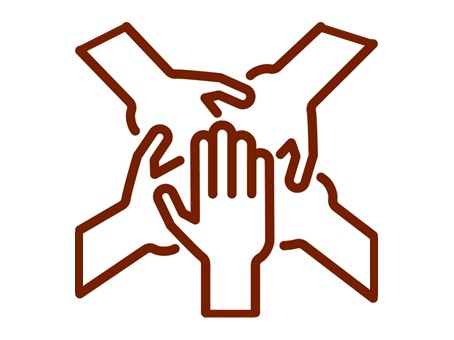
Act
Display this sentence starter “I will treat others _______________ because ____________.”
Invite students to brainstorm ideas of how people like to be treated and explain why they believe that. For example, "I will treat others fairly because I like to be treated fairly, or I will treat others well because God loves me".
A template has been provided for the option to display a class’s collective commitment. These could be printed as A5 size to display. You may like to invite students to decorate the commitment. Alternatively, students could complete the sentence in their learning journal.
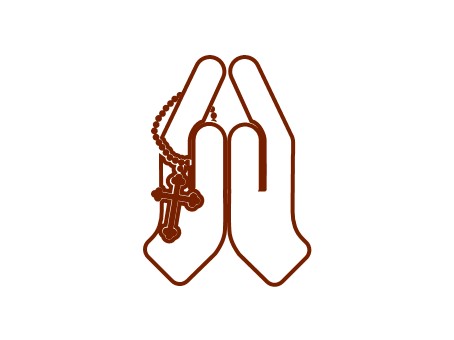
Pray
Watch the Global neighbours: a prayer for children video as a prayer experience.












